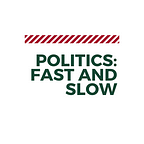Understanding Covid Denial
Individuals have had a range of reactions to the pandemic: terror, apathy, and denial chief among them. Why do we react so differently?
Covid denial has been occupying my thoughts for a while. You can tell from my stories over the past few months: ‘Why Covid-19 Is Much Worse Than The Flu’, ‘Everything We Get Wrong About COVID-19’, and ‘Why Is Screening Asymptomatic People For COVID-19 So Difficult?’
Driven though I may have been to dispel myths about the pandemic and clear things up, I’ve struggled to really think about why we get so much misinformation, disinformation, and denial in our public discourse. The vehicles for the spread of this misinformation are fairly obvious: social media is the chief culprit, but the media world is far more diverse generally than it was thirty or forty years ago, with new talk radio stations, internet forums, and news networks. This diversification has given rise to more media appealing to the fringes of political thought and society, including Covid denial.
But an understanding of the vehicles driving misinformation, albeit important, is not an understanding of why there are so many people believing in, and even investing in, misinformation and denial. It doesn’t explain what it is that makes people susceptible to…
